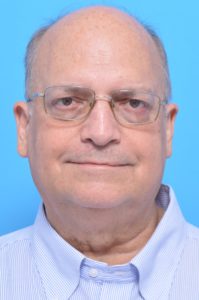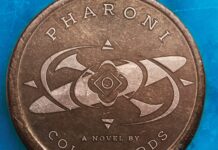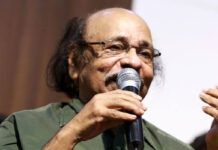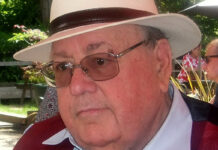Firstly… where did you grow up, and does that still influence your writing now?
I grew up in Memphis, Tennessee, from 1962 to 1972, age seven to seventeen more or less. Memphis was undergoing great change. Martin Luther King was killed there; it was segregated for much of that time, but it was also a prosperous time in the US, the dawning of the ’60s, an optimistic time in some ways and I write often of Memphis and have great memories of that time: of the music, of the suburban quiet, the tranquility of childhood, the lack of responsibility, the turmoil, yes, but also the great memories of childhood.
Can you remember writing down your first structured words at school?
No, not at all, but I do remember penning an article for the local paper at age nine on the subject of the small caged animals at the local zoo which I argued lacked room. The piece was in fact on the plight of the roadrunner bird which they had cooped up in a little cage. I was quite the animal lover at that age, and was devoted to wild animals, not so much pets or farm animals.
Did you have a love of words back then?
I had a love of sounds, even in the crib. I was great with nonsense sounds; singing, tuned in to passing conversations. I loved then and still love the regional usage that marks that area of the US, the Mississippi Delta and the Mid-South. I especially liked teaching in Saudi Arabia and Japan with colleagues from all over the English-speaking world.
Did you go to University?
I did my undergraduate work at UC, Berkeley, then on to grad school in LA, finally I did a PhD in English via distance learning in Australia. But I have also taken numerous non-degree courses at UCLA, SFSU, and the New School for Social Research in New York. I take seminars from time to time online. I love MOOCs and take advantage of free lectures all the time.
Is writing your full-time job?
No, I am retired. I have made my living as a teacher. I taught in public schools, then in junior colleges, and finally in universities, first in New Jersey, then Saudi Arabia for six years, followed by some time in China and Japan. I had to get out of the US where teaching is often not very enriching. It is not just the low pay; it is the anger students have toward their teachers. Abroad, students tend to love their teachers.
Tell me about your very first writing engagement.
I wrote plays throughout college. There may have been a few poems or stories here and there, but it was plays for a good ten years. I was into Pinter and Albee at the time, and I wrote a derivative play on similar themes about a friendship, modelled rather directly on Pinter’s Old Times. I had plays and readings quite regularly and loved the rehearsals but hated the productions, the rest of it, the people, really the lack of money, the tensions.
Tell me about the projects you are working on at the moment.
I have a collection of poems which was published in 2017 of some fifty poems and I am still excited by it. I have half of my memoirs completed, a narrative of my teaching experiences over the years. This is my first anthology of stories and poems, and of course the play rounds out the collection. My novel of life in Saudi Arabia is in its final draft. I hope to see published next year.
What do you most love to write about?
I love to write about my childhood, about Memphis which seems so lost, so gone…about the engulfing, unfolding catastrophe of America’s decline. I am increasing fascinated by the indifference to this decline among the rich. I am flabbergasted that my rich friends don’t care. The sentences form in my mind. When they appear, I have to get them out, take dictation really, before I forget them.
Do you have a particular writing location?
I like coffee shops for the first draft. When I was in college, I preferred fancy coffee shops with poetry readings and expensive omelets. Later, fast food restaurants suited me. Now, I hide in the back of convenience stores with seating. The key is that I do not wish to talk or to be spoken to. I can refine at home, at the office even, but I can’t write a first draft in total quiet.
What are your plans for the future?
Well, just now it is pouring out. I hope there is more. When things are hot, I often dream sentences and can often remember them. Can one plan? I think not. But, again, I do hope to see my poems published this year in book form. So, I can hope and that helps. I prefer paper to internet publication because internet sites close.
Name your THREE most favorite books and why.
Saul Bellow’s Humboldt’s Gift – I love Bellow’s habit of mixing the high and the low, primarily the Jewish intellectual in conflict with low-life swindlers, hoodlums, and so on. The lush life and the street… this was his life, of course, in Chicago. I find him hilarious.
Faulkner’s Light in August – Faulkner’s world is so full of daring. Is there really anything like it in American letters, this world of raging sexual tensions? Faulkner’s treatment of the nympho – maniacal white widow and the black stud is simply breathtaking… how it was ever published, the world that allowed that…today it would be torn apart of finger-wagging prudes of PC sensibilities. PC stuff seems so tame by comparison. Faulkner’s stuff is electrifying. That he captures such a conflict, of lust and shame, is wild.
Tennessee William’s Night of the Iguana – Williams wrote about all sorts of women but most were mentally ill. Here, for once, is a group of a totally sane women, all making perfectly good sense and wanting things that are noble, or more or less so. His fellow-travelers are monsters, abusive and threatening, but the women he loves are strong, smart, and sensuous. This is his best work. It is the man who needs care not the women.
When did you know that creative writing was something you wanted to do professionally?
I don’t do this professionally. Alas, few writers do. I am not one of them. I would like to, though, I will confess that, but so far it has been a hobby, which is not to say I don’t care about it or take it seriously, but to make the point that that it does not pay my rent. Most would-be writers teach, but our best writers wrote and avoided the classroom.
When you write, do you aim for a particular aesthetic, or do you let each poem or story choose its own path?
I can’t say that I do, no. I am at the stage where the words just add up and then stop. I have little design. Some poems emerge virtually whole and I write them down, often forgetting exactly where I was when I first heard or saw or thought out the piece. I am just taking dictation. Otherwise, I write, word by word, and I rarely think them out. I begin with a word or a phrase, rarely with an image, and then build from that first phrase.
Can you discuss your process for writing “Bluff City” or any other project?
I write one poem at a time, you know. These poems have similarities, I suppose, but I wrote each one with little confidence there would be more to come. I have never had writer’s block. I guess it exists like stage fright and is to be taken seriously, but I don’t know anything about it. Writers block is the least important problem writers face. Ignorance is of far greater importance. The remedy is reading. My students often said they didn’t know how to start and just stared at their papers. I told them to start in the middle or at the end. Elementary school teachers make kids start at the beginning and do outlines. All of this is wasteful and possibly harmful.
Do you like to do rewrites?
I enjoy writing. When I reread my stuff, I nearly always find errors and gaps and too many words. Some come virtually complete; I don’t do much rewriting, others do, of course, but those are rarely improved over time. Smoothing out can kill a strong poem. One must learn to stop. I also get sick of the ones needing constant readjustment. I much prefer the ones that are complete from the start. Of course, these tend to be short. I read and write at the same time. Often, the trigger is a phrase I will see in print for the first time.
Is there anything in particular you want to achieve with this poetry collection?
I wanted very much to gather the poems and see them together. I took a great deal of trouble assembling them, ordering them, editing them. I have taken out as many as I have put in. There are a number of bad poems that don’t deserve placement. I try to get rid of them once and for all. There are others that have been published because they were liked by someone other than myself. These are the ones I would like to be seen and read.
What is next for you?
In writing, more poetry, I hope. I love to “receive” and write a good one. I say receive because I just don’t know where they come from. Otherwise, I am working on several prose pieces and a screenplay. Not plays.
What do you want readers to take away from your poetry? What should they know about you as a writer?
There is nothing to know about me outside of the poetry. My poems are very revealing, I think, even when they are made up, as most of them are, you know, they are not autobiographical, but they are about a narrator or a persona, who is not me but was invented by me. It is all there. I can’t know what people take away, can I? I try to be amusing or dramatic. My poetry can be impactful. There are flaws. Writing a beautiful, strong poem is no mean task. I admire T.S. Eliot very much. Wallace Stevens is thrilling and so is Sylvia Plath. Women have always been allowed to write poetry in America and as a result we have some great female poets. I would say our women have been more serious than our male poets. I am thinking of the greats: Dickinson, Stein, Sexton, Sylvia Plath and others.
Lastly, what does writing MEAN to you?
At this time, writing is purging, it is expression, it is release and relief. I need to get it out… I find it refreshing, like losing weight. I like the process, the act of writing, even the editing. I go over pieces again and again, not obsessively, but thoroughly. I am glad finally to see something finished. It is partly generational. A book is a big thing for me. I do not see a lot in public recitation parties or “mic dropping” activities as central to the art form.
About David Lohrey

David Lohrey’s plays have been produced in Switzerland, Canada, and Lithuania. His poems can be found at Expat Press, Cardiff Review, FRiGG, The Drunken Llama and Trouvaille Review. His fiction can be seen at Dodging the Rain, Terror House Magazine, and Literally Stories. Three new anthologies in 2019 include David’s work: Universal Oneness (India), Passionate Penholders (Singapore), and Suicide, A Collection of Poetry and Prose (UK). David’s first collection of poetry, Machiavelli’s Backyard, was published in 2017. His newest collection, Bluff City, will appear this fall, published by Terror House Press. He lives in Tokyo.
















